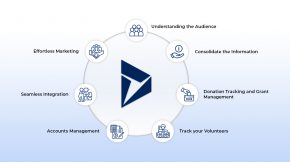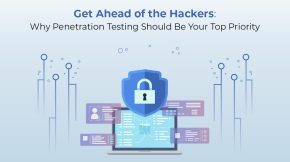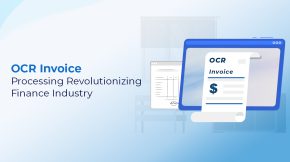The Core Benefits of Working with a Certified Databricks Consulting Partner
Your business runs on data. Every transaction, every customer interaction, every operational decision creates information that could change everything. But here’s the thing – most companies sit on mountains of data they can’t actually use. It’s scattered across different systems, trapped in old formats, or just too messy to trust.
Databricks helps fix that. It brings everything together in one place where your team can actually work with it. But getting there isn’t simple. That’s where databricks consulting partners come in. They know the platform inside out and can help you avoid the mistakes that waste time and money.
A Quick Glance: Key Advantages of a Databricks Partnership
| Benefit Area |
How a Certified Partner Delivers Value |
| Expertise & Efficiency |
Leverage validated skills on the Databricks Lakehouse Platform for optimized architecture, deployment, and cost control. |
| Advanced Data Engineering |
Construct and manage robust, scalable ETL/ELT pipelines using Apache Spark, Delta Lake, and Python for clean, reliable data. |
| Accelerated AI & ML |
Deploy end-to-end machine learning solutions with MLflow, AutoML, and Feature Store for faster, more accurate predictions. |
| Enhanced Security & Governance |
Implement industry best practices and utilize tools like Unity Catalog to ensure data is secure, compliant, and well-governed. |
| Significant ROI |
Achieve greater efficiency and cost savings through performance tuning, resource optimization, and streamlined workflows. |
What does a Databricks consulting partner do?
Think of them as your guide through unfamiliar territory. A Databricks consulting partner is a team of people who’ve earned their certifications and spent years working with the platform. They’ve seen what works and what doesn’t.
These partners handle everything. They start by understanding what you’re trying to achieve, then they design a system that fits your needs. They set up your data lakehouse, build the pipelines that move your data around, and make sure everything stays secure and compliant. And they don’t just hand you the keys and leave – they stick around to help you get the most out of it.
A real Databricks implementation partner knows that technology alone won’t solve your problems. They align what the platform can do with what your business actually needs. That means less time wrestling with technical issues and more time using your data to make better decisions.
How Can a Partner Optimize Your Data Architecture for Peak Performance?
Here’s where things get interesting. One of the biggest Databricks partner benefits is how they build your data architecture. They don’t just slap together a quick solution. They design something that’ll grow with you.
The lakehouse approach they use combines two things that used to be separate: data lakes (where you dump everything) and data warehouses (where you organize it for analysis). Now you can keep all your data in one place without sacrificing speed or reliability.
Partners who know what they’re doing build this on Delta Lake. That gives you transaction safety, which means your data stays consistent even when multiple people are working with it at once. You also get time travel – seriously, that’s what it’s called – so you can go back and see what your data looked like last week or last month. That’s gold when you need to audit something or fix a mistake.
And it doesn’t matter if you’re on AWS, Azure, or Google Cloud. A good Databricks service provider makes it work with whatever you’ve got. As your needs change, they adjust things to keep costs down and performance up. You won’t get stuck with something that worked great two years ago but doesn’t fit anymore.
They handle all the technical stuff: cluster configuration, storage optimization, network setup. You just get a system that runs smoothly and doesn’t break the bank.
Why are Certified Professionals Crucial for Data Engineering and ETL Pipelines?
Your data’s useless if it’s not clean and organized. That’s just reality. databricks consulting partners excel at building the pipelines that take raw data and turn it into something you can actually use.
ETL stands for Extract, Transform, Load. It’s how you pull data from different sources, clean it up, and put it somewhere useful. These certified professionals use tools like Apache Spark and Python to handle massive amounts of information without breaking a sweat. They know how to structure things so your pipelines run fast and don’t fall over when the data volume spikes.
But it’s not just about moving data around once. They set up both batch processing (for handling big chunks of data at scheduled times) and streaming (for real-time updates). That streaming capability matters more than you might think. When market conditions change or a customer does something unexpected, you want to know right away, not tomorrow morning.
These experts think in terms of production from day one. They don’t build something that barely works and then try to scale it up later. They automate the workflows, set up monitoring, and make sure everything’s reliable before it goes live. Working with a Databricks implementation partner means you get pipelines that actually stay up and running.
How Can Databricks Consulting Partners Accelerate Your AI and Machine Learning Initiatives?
Machine learning sounds fancy, but it’s really about making predictions based on patterns in your data. Maybe you want to forecast sales, detect fraud, or figure out which customers are about to leave. Databricks handles all of that, and a certified Databricks partner makes sure you do it right.
They guide you through the whole process. First, they help prepare your data – cleaning it, organizing it, making sure it’s good enough to train models on. Then they use tools like MLflow to track your experiments, so you know what works and what doesn’t. They set up model registries so you can manage different versions and deploy the ones that perform best.
Partners also use AutoML and Feature Store to speed things up. AutoML tries different approaches automatically to find what works for your specific problem. The Feature Store keeps track of the data features you use, so you’re not rebuilding the same things over and over.
And they create collaborative workspaces where your data scientists and analysts can work together. Everyone can see the same data, share notebooks, and build on each other’s work. That’s one of the top reasons to work with a Databricks partner – you get an environment where innovation actually happens instead of getting stuck in silos.
What are the benefits of a certified Databricks partner from a business perspective?
Let’s talk about what this means for your bottom line. Why hire a Databricks consulting company? Because they deliver results you can measure.
First, there’s ROI. Databricks reports that organizations working with certified partners see real efficiency gains and cost savings. Partners tune your system to use resources efficiently, which means you’re not paying for computing power you don’t need. The platform’s pay-as-you-go model helps, but only if someone knows how to optimize it properly.
Security matters too. Data breaches are expensive – not just in direct costs but in reputation damage. databricks consulting partners implement security best practices from the start. They use Unity Catalog to manage permissions, encrypt data both when it’s stored and when it’s moving around, and make sure you’re compliant with regulations like HIPAA or GDPR.
There’s also a competitive edge to consider. When you work with certified experts, it shows you’re serious about data. Your stakeholders notice. Your competitors notice. You’re not just collecting information – you’re actually using it to make smarter decisions faster than the other guys.
And here’s something people don’t always think about: team enablement. A skilled partner trains your existing team so you’re not dependent on outside help forever. They transfer knowledge, share best practices, and make sure your people can handle things going forward. Is it worth hiring a certified Databricks partner? When you look at the long-term benefits, including what your team learns, absolutely.
How Do Databricks Partners Drive Success Across Different Industries?
Every industry has its own headaches when it comes to data. A seasoned Databricks service provider understands that what works for retail won’t necessarily work for healthcare. They bring experience from different sectors and apply it to solve your specific problems.
In healthcare, partners connect data from electronic health records, medical imaging, and IoT devices. That lets doctors make better clinical decisions in real time. You can predict patient outcomes, speed up drug discovery, and do it all while keeping patient data secure and HIPAA-compliant. These are real Databricks partner benefits that save lives.
Finance is different. Here, partners pull together transaction data, market information, and customer records to detect fraud as it happens. They build risk models that are more accurate than old statistical methods. They make regulatory reporting easier by automating the data collection and validation. When the stakes are this high, you need people who’ve done it before.
Manufacturing partners focus on IoT sensor data, ERP systems, and quality reports. They enable predictive maintenance so you can fix equipment before it breaks instead of after. They set up real-time quality monitoring to catch problems on the production line immediately. That means less downtime and fewer defective products.
Retail partners integrate point-of-sale data with customer behavior and supply chain information. That powers personalized marketing – showing people products they actually want instead of random stuff. It improves demand forecasting so you’re not stuck with excess inventory or running out of popular items. These practical applications of databricks consulting services drive revenue directly.
How to choose a certified Databricks consultant for your needs?
Picking the right partner matters more than you might think. You want a certified Databricks partner with a track record in your industry. Ask them about projects they’ve done that are similar to yours. Do they have certified consultants, architects, and engineers on staff? How many?
Ask about their approach to data modernization and migration. If you’re moving from an old system, you need someone who’s done it before and knows the gotchas. Check if they focus on governance – that’s crucial for keeping data secure and meeting regulatory requirements.
But here’s the thing: the best partners don’t just implement technology and walk away. They focus on enabling your team. They transfer knowledge so you can sustain and build on what they create. Their approach should cover strategy, implementation, AI, machine learning, and business intelligence. It’s a full package, not just a one-time setup.
Look for databricks consulting partners who ask good questions about your business goals, not just your technical requirements. The technology serves the business, not the other way around.
Why Choose Beyond Key as Your Databricks Consulting Partner?
At Beyond Key, we build solutions that fit your specific situation. Our team of certified databricks consulting partners brings deep knowledge in data engineering, machine learning, and cloud integration. We don’t believe in cookie-cutter approaches. Instead, we take the time to understand what you’re trying to accomplish and design a system that gets you there.
We focus on creating solutions that scale with your business and don’t break your budget. And we make sure your team knows how to use what we build, so you’re not dependent on us forever. That’s how you get real, sustainable competitive advantage – not from fancy technology alone, but from knowing how to use your data better than anyone else in your market.
Frequently Asked Questions
1. Can you explain Databricks in simpler terms?
Databricks is a cloud platform that makes working with big data easier. Instead of having your data scattered across different systems where different teams can’t access it, Databricks creates one place where everyone can work together. Data engineers can build pipelines, data scientists can train models, and business analysts can create reports – all in the same environment. It runs on top of cloud providers like AWS, Azure, or Google Cloud, so you don’t need to buy and maintain hardware. The main idea is to help you get useful insights from your data faster and with less hassle.
2. How does Databricks consulting help me get started?
Starting with Databricks on your own can feel overwhelming. There are a lot of moving parts, and it’s easy to make decisions early on that cause problems later. Our Databricks consulting services help you avoid that. We design your architecture based on what you actually need, not some generic template. We handle the initial setup and configuration so things work right from the start. That means you spend less time troubleshooting and more time getting value from your data. We also train your team so they can take over once things are running smoothly.
3. Is Databricks good for both AI/ML and standard business intelligence?
Yes, it handles both really well. That’s actually one of its strengths. For AI and machine learning, Databricks provides the computing power and built-in libraries you need to train complex models on large datasets. For business intelligence, it connects easily with tools like Power BI and Tableau. You can build your data models in Databricks and then create dashboards and reports in whatever BI tool your team already uses. So whether you’re building predictive models or just trying to understand last quarter’s sales, the same platform works for both.
4. What is the role of Delta Lake in Databricks?
Delta Lake is what makes Databricks reliable. Regular data lakes can be messy – data gets corrupted, different processes overwrite each other, and you can’t trust what you’re looking at. Delta Lake fixes that with ACID transactions, which is a fancy way of saying it keeps your data consistent even when multiple people are working with it. It also tracks your schema so bad data doesn’t sneak in and break things. And with time travel, you can go back and see what your data looked like at any point in the past. That’s incredibly useful when you need to audit something or recover from a mistake.
5. Can a partner help migrate our existing data warehouse to Databricks?
Absolutely. Migration is a core service for experienced databricks consulting partners. Whether you’re moving from an old on-premises system or another cloud platform, they plan and execute the whole thing in phases to minimize disruption. They make sure your data is optimized for the new platform so you actually get better performance, not just a lateral move. And they coordinate timing so your business operations keep running while the migration happens. You won’t wake up one day to find critical reports missing because someone forgot to migrate a table.












